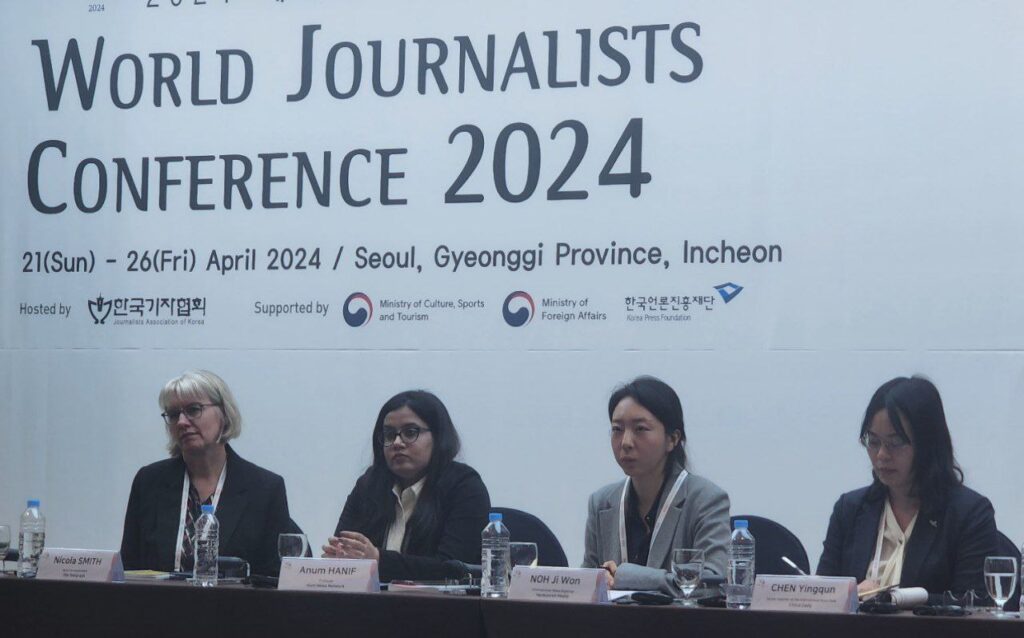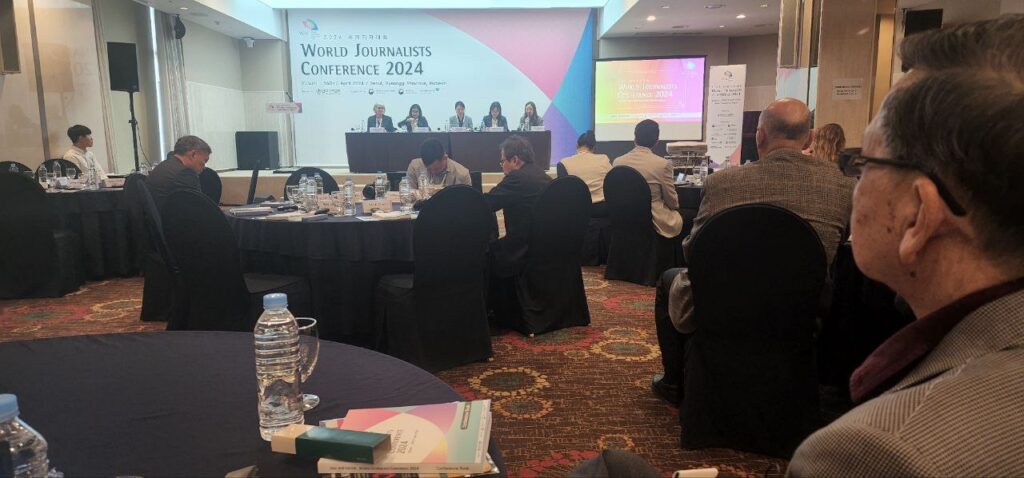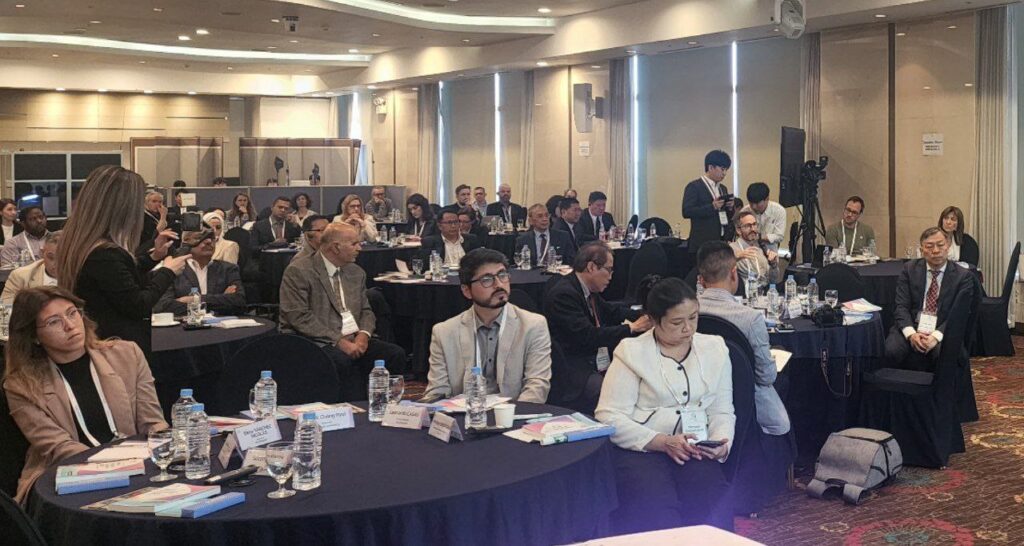Female Journalists Urge for Fact Reporting on Global War and Peace
Story and photos by Chhay Sophal
Seoul, South Korea (22 April 2024): Four senior female journalists from China, Britain, South Korea and Pakistan seek today here urge for global peace and ask their journalism colleagues around the world to share the facts with no biased information through their news products.

Speaking in front of some 100 journalists from 46 nations, including Cambodia and hosted Korea, in the first session at the World Journalists Conference (WJC) 2024 organised by Journalists Association of Korea (JAK), Ms. Chen Yingqun, Senior Reporter of the International News Desk of China Daily, said that war and conflicts are not only directly impact to the people’s lives but they could also threaten the future of global human civilization and planet.
Basing on the conflict between Russia and Ukraine and the long-standing between Palestine and Israel, including Gaza Strip, Chen shared her thoughts that media around the world should report on wars or conflict in a timely, accurate and comprehensive manner.
“Media platforms are the key to spreading information, and they have a significant role in supporting global and progress”, Chen said adding that the global media outlet should work together to improve public understanding of international issues through responsible and positive reporting, foster and cross-border dialogue and facilitate peaceful resolution of the conflicts, thereby contributing to peace and development of the world.
Echoing Ms. Chen, Ms. Nicola Smith, the Telegraph’s Asian Correspondent who currently focuses on Taiwan and Korea, said that the role of media in war journalism and world peace is a huge topic and there is no doubt that ‘the media can change mindsets and sometimes even shift the course of events. It does make a difference”.
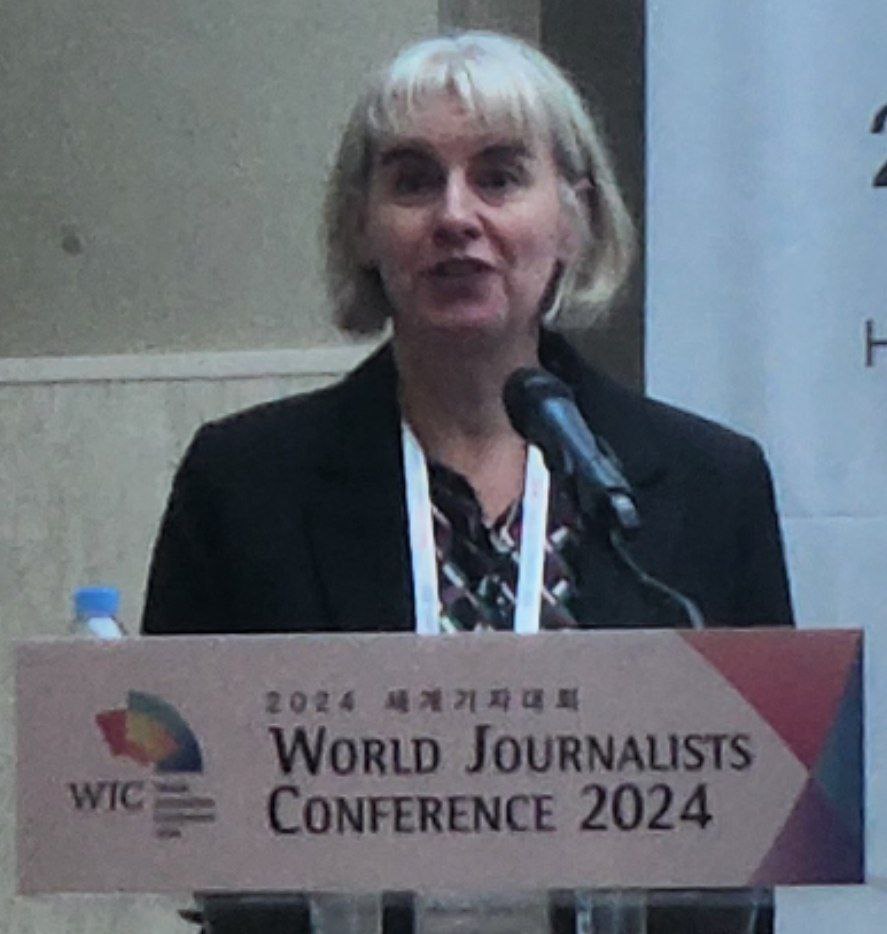
“The reality is that as journalists we are often on the periphery of events, observing rather than driving them, but still playing a vital role in throwing a spotlight onto the horrors and documenting the madness of war, hoping that lessons can be learned, that justice can be served. Also showing the best of humanity in the most terrible circumstances,” Nicola said adding that the journalists’ job to show the human face of any crisis, to make an individual’s situation relatable to a world that is suffering from compassion fatigue.
However, she said “Reporting the truth has become more difficult to a more sceptical audience…..But the truth is the truth, and nothing can substitute an eyewitness account. We have to stay the course, ignore the trolls, keep challenging the sinister manipulation of the facts with robust and professional reports. We also have to check our own biases and retain the humility to accept that our knowledge is often lacking, that the truth is often nuanced and hard to find”.
The WJC2024 is done at a time when the world is terrified by wars erupting in Eastern Europe and the Middle East, leaving hundreds of thousands of people, especially innocent civilians and journalists, dead and wounded after the global disaster of COVID-19 while tensions in the Korean Peninsula and the South China Sea are also disrupting the world’s daily lives.
The world order has been lost and it cannot be happy and peaceful while the powerful have been taking advantages of each other in order to be the world big brother or unique superpower, aiming to take extreme interests by striving to occupy political and military geography respectively at the same time they are having nuclear weapons and wishing to press the button.

As also one of the speakers at the WJC2024, Anum Hanif, Producer of Hum News Network in Pakistan, said that the current conflicts around the world is leaving the path of devastation and suffering and that there are lot of violence and turbulence in the globe, from domestic to international conflicts.
“In these challenging times, the media emerges as a powerful force in shaping perceptions, disseminating information, and influencing public opinion,” she said adding that amidst, the media serves as a widow to the realities of wars and plays a crucial role in shape how the public perceives these crises.
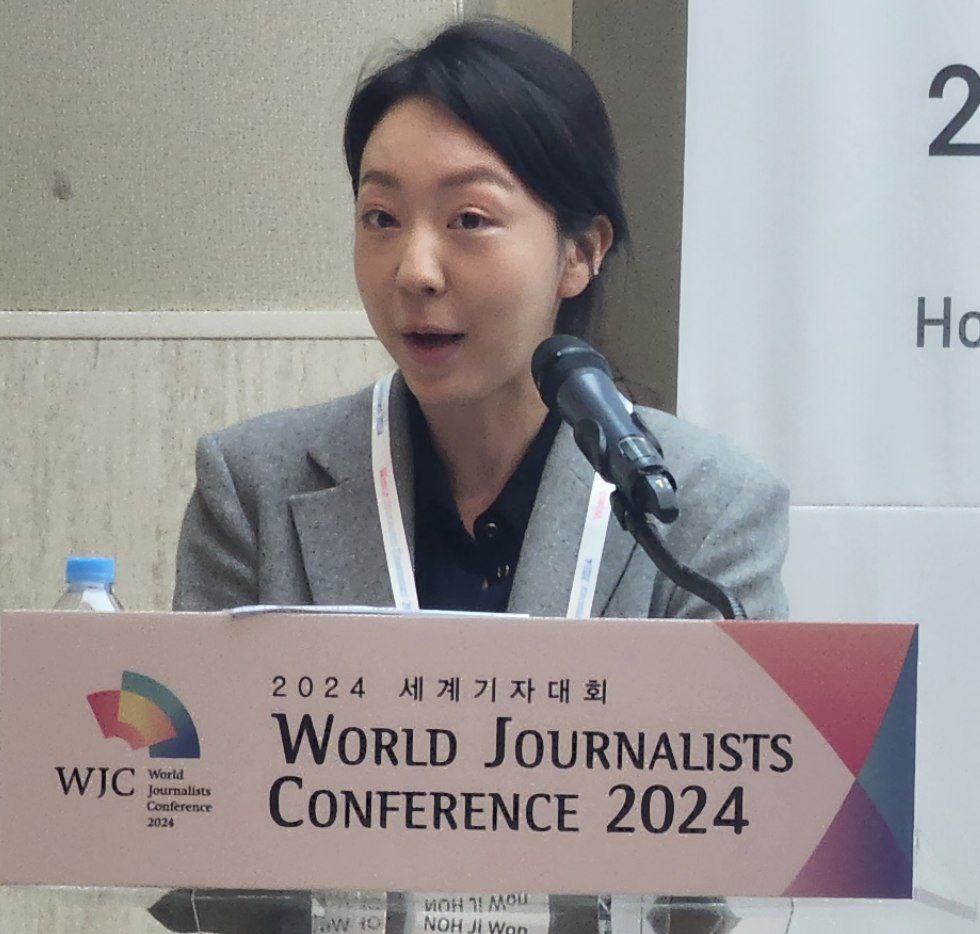
Joining the above 3 female speakers, Ms. Noh Ji Won, South Korea’s Hankyoreh International News Reporter who covered news on refugees along the Polish-Ukraine border and in Ukraine’s Kyiv capital, said that in the so-called ‘information war’ journalists have an obligation to ensure that the public can access unbiased news and that “People only have the chance to build their own opinions on such issues with high quality journalism, first hand successes and reliable information”.
The WJC2024 with some 60 foreign journalists from 50 countries is held on April 21 – 26 April in Seoul, Gyeonggi-do, Incheon, Suwon and Ansan, including the Demilitarized Zone (DMZ), a symbol of division, to be reminded of the preciousness of peace.
Since the establishment in 1964, JAK has stood as the preeminent journalists‘ consortium in South Korea, engaging over 12,000 members from 204 media establishments across newspapers, broadcasts, telecommunications, and digital platforms.
Started in 2013, JAK has hosted annual WJC for 12 times and it aims to tackle common global challenges and engage in meaningful discussions about the future of journalism.
